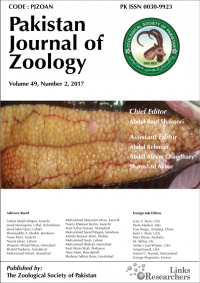An Assessment of the Growth and Profitability Potential of Meat-Type Broiler Strains under High Ambient Temperature
An Assessment of the Growth and Profitability Potential of Meat-Type Broiler Strains under High Ambient Temperature
Zia ur Rehman1, Naila Chand1, Rifat Ullah Khan2,*, Sarzamin Khan1 and Muhammad Subhan Qureshi3
ABSTRACT
To share on other social networks, click on any share button. What are these?










